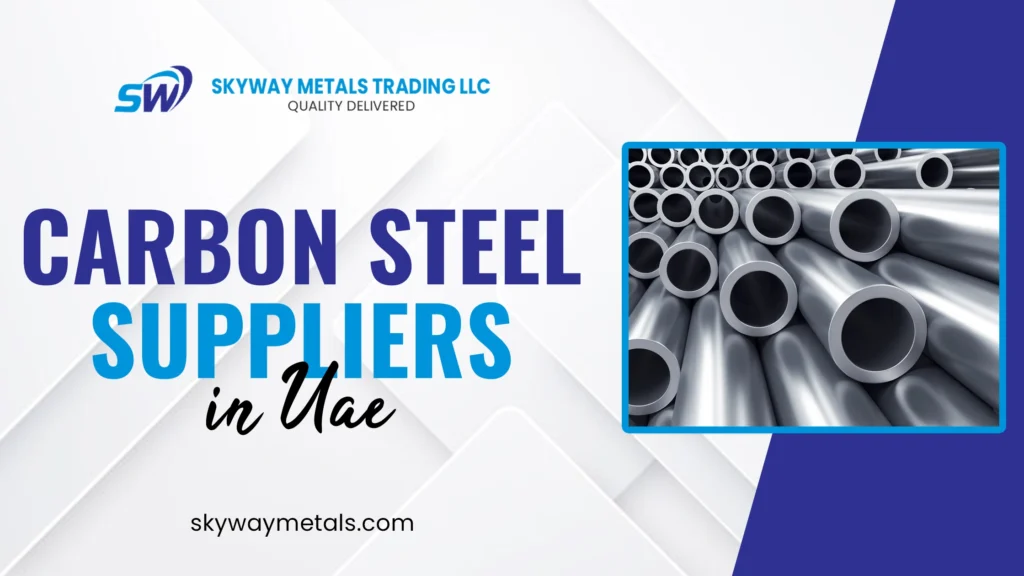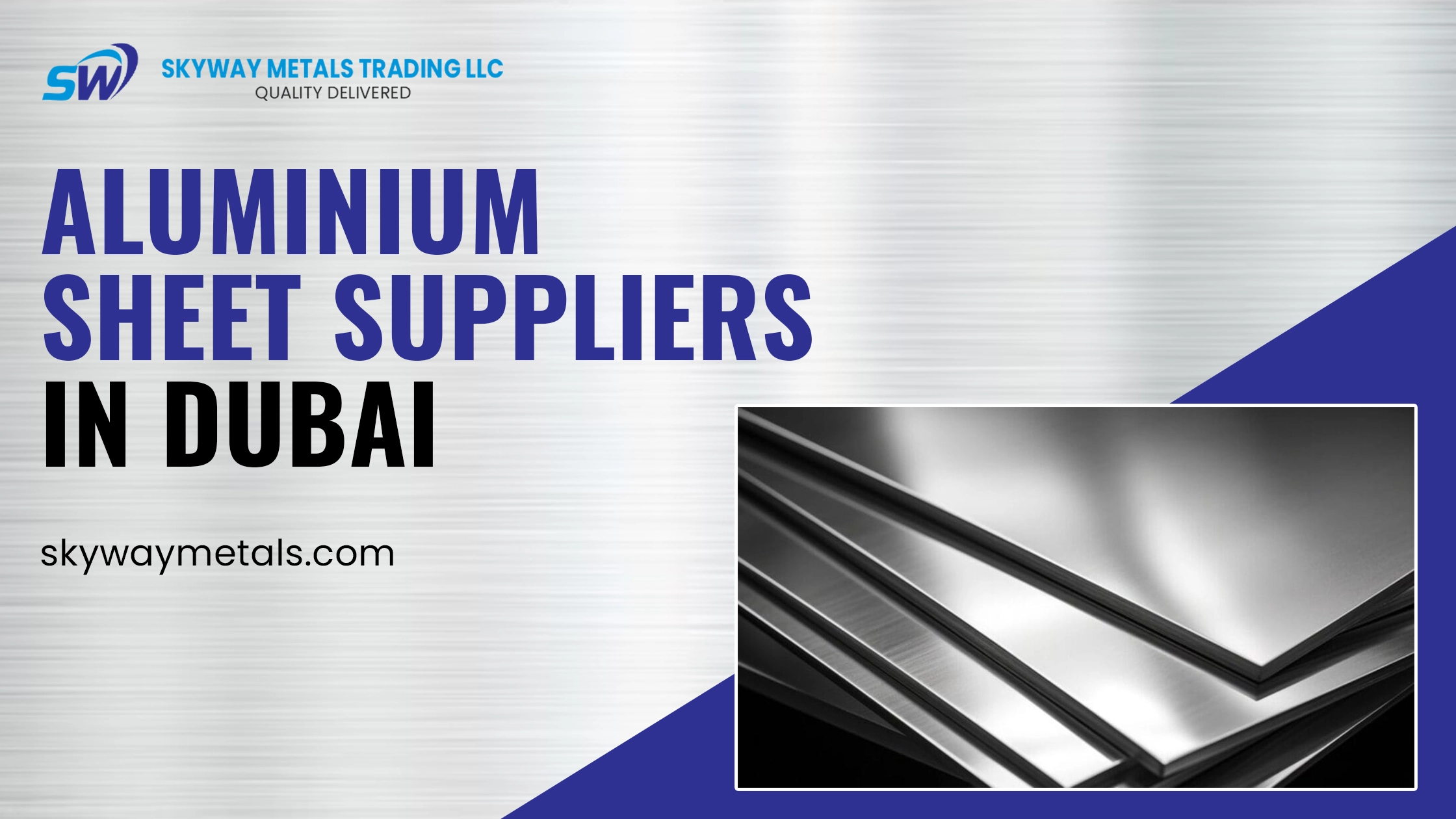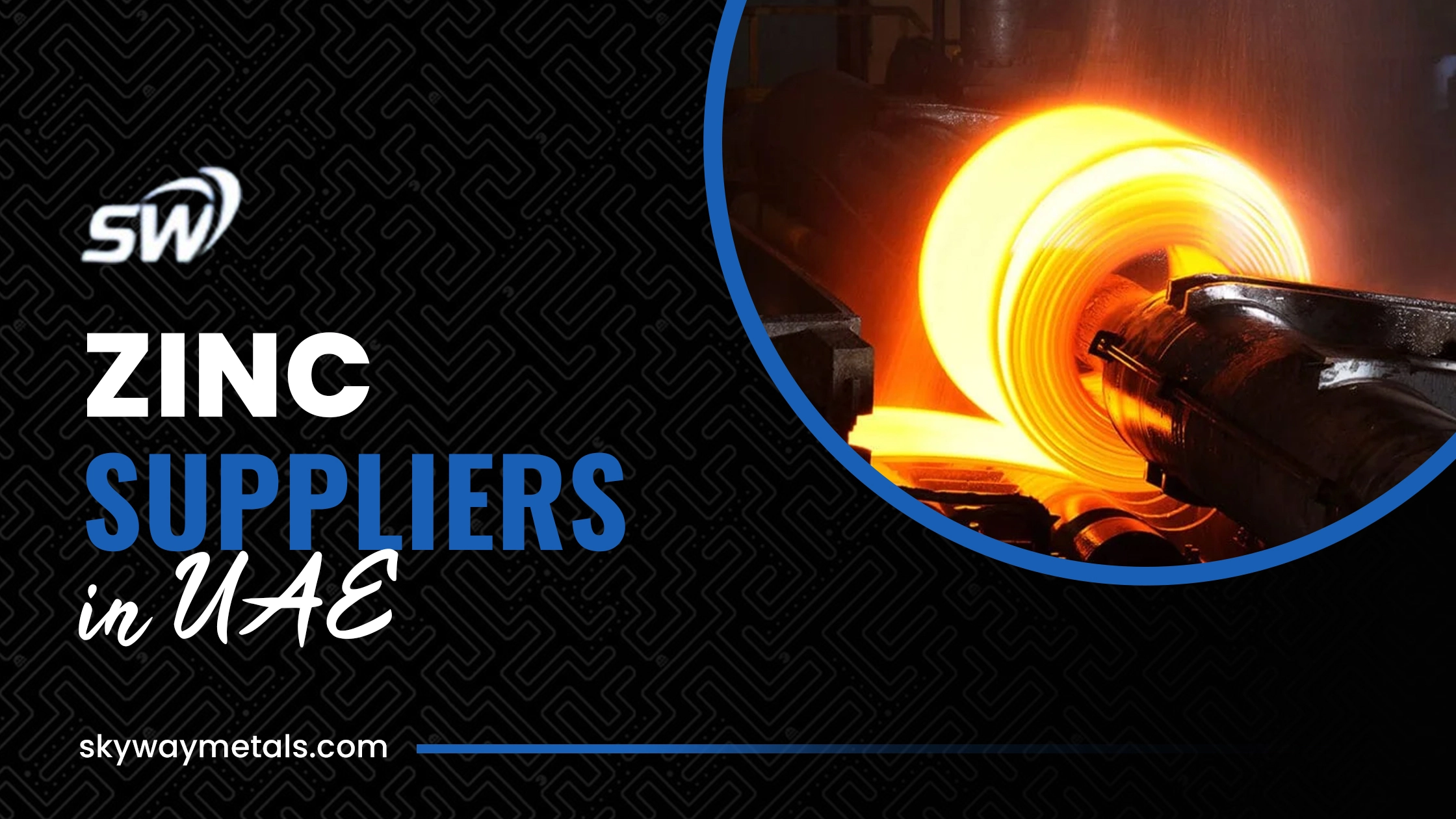When you’re navigating the world of industrial metals, choosing the right type of steel isn’t just a technical decision—it’s a strategic one. Whether you’re designing structural components, fabricating automotive parts, or developing high-pressure equipment, understanding the difference between carbon steel and alloy steel can make or break your project.
At Skyway Metals Trading LLC, a leading name among Carbon steel suppliers in UAE and Alloy Steel Suppliers in UAE, we’re often asked: Which steel is better for my industry?
The answer isn’t always straightforward, but this guide will help break it down in simple terms.
What is Carbon Steel?
Carbon steel is, as the name suggests, steel where carbon is the main alloying element. It’s simple, strong, and versatile. Depending on the carbon content, it’s classified as:
- Low-carbon steel (up to 0.3%) – Ductile and easy to weld, perfect for structural applications.
- Medium-carbon steel (0.3%–0.6%) – Stronger, used in machinery and automotive parts.
- High-carbon steel (0.6%–1.5%) – Very hard, ideal for tools and blades.
What makes carbon steel popular among manufacturers and fabricators is its affordability and ease of processing.
What is Alloy Steel?
Alloy steel, on the other hand, is steel that includes additional elements like chromium, nickel, molybdenum, vanadium, and more. These elements are added in controlled amounts to enhance properties like corrosion resistance, strength, toughness, and heat resistance.
Some common alloy steels include:
- 4140 (chromium-molybdenum steel) – Great for strength and wear resistance.
- 4340 (nickel-chromium-molybdenum steel) – Used in aerospace due to its toughness.
- EN24 / 817M40 – A high-strength alloy steel known for its fatigue resistance.
As trusted Alloy Steel Suppliers in UAE, we provide a wide variety of grades tailored to meet the rigorous demands of industrial projects.
Carbon Steel vs. Alloy Steel: A Comparative Breakdown
Let’s dig into the differences through various critical aspects.
1. Composition
- Carbon Steel: Iron + carbon (and a few trace elements like manganese and silicon).
- Alloy Steel: Iron + carbon + alloying elements like nickel, chromium, vanadium, etc.
Verdict: Alloy steel has a more complex composition, allowing it to be “engineered” for performance.
2. Mechanical Properties
- Carbon Steel: Its strength depends largely on its carbon content. High-carbon steels are very hard but brittle.
- Alloy Steel: Enhanced mechanical properties—like higher tensile strength, ductility, and toughness—especially at high or low temperatures.
Verdict: If your project demands specialized strength or flexibility, alloy steel is your go-to.
3. Corrosion Resistance
- Carbon Steel: Generally low corrosion resistance. Requires coatings or galvanization in harsh environments.
- Alloy Steel: High resistance, especially when alloyed with chromium and nickel (think stainless steels).
Verdict: Alloy steel wins hands down for marine, chemical, or outdoor applications.
4. Cost
- Carbon Steel: Less expensive due to simpler manufacturing and fewer alloying elements.
- Alloy Steel: More costly, especially high-alloy variants, but offers better performance over time.
Verdict: For budget-conscious projects where extreme durability isn’t critical, carbon steel may be more practical.
5. Machinability & Weldability
- Carbon Steel: Easier to cut and weld, especially low-carbon variants.
- Alloy Steel: Can be harder to machine and weld due to hardness; often requires specialized tools.
Verdict: Carbon steel is a favorite among fabricators for ease of handling.

Real-World Applications
Carbon Steel Applications
Carbon steel is favored in industries where cost, strength, and fabrication simplicity are paramount. Common uses include:
- Construction beams and columns
- Automotive chassis and frames
- Pipelines and storage tanks
- Rebar and mesh for concrete reinforcement
As Carbon steel suppliers in UAE, we often serve contractors, infrastructure developers, and heavy machinery firms.
Alloy Steel Applications
Alloy steel is preferred for high-performance applications. It shines where extreme conditions or loads are involved:
- Aerospace parts like landing gear
- Oil and gas pipelines and valves
- Gears, shafts, and crankshafts in heavy machinery
- Power plant components
Being one of the top Alloy Steel Suppliers in UAE, Skyway Metals Trading LLC supports industries that can’t compromise on reliability or longevity.
Choosing the Right Steel: Questions to Ask
Before selecting between carbon and alloy steel, ask yourself:
- What are the operating conditions? (corrosive, high pressure, or high temp?)
- Do I need high tensile strength or wear resistance?
- Is cost or performance more critical for my project?
- What’s the expected life span of the component?
Our experts at Skyway Metals Trading LLC guide industrial clients daily on these questions, ensuring they make the right choice based on application, not just price.
Quick Comparison: Carbon Steel vs. Alloy Steel
When it comes to choosing the right material for your industrial project, the debate often comes down to carbon steel vs. alloy steel. Here’s a detailed comparison to help you evaluate which one fits your needs.
Composition-wise, carbon steel is made of iron and carbon, with small traces of other elements. It’s simple and efficient. In contrast, alloy steel contains additional alloying elements like chromium, nickel, molybdenum, or vanadium. These additions drastically enhance performance depending on the application.
Cost is a major factor in material selection. Carbon steel is generally less expensive, making it a preferred choice for budget-conscious projects. Alloy steel, while more costly, justifies its price with superior properties like corrosion resistance and mechanical strength.
Strength is another crucial factor. Carbon steel offers good tensile strength, especially in medium- and high-carbon grades. But alloy steel takes it further, with customized strength levels that can be adjusted through the type and amount of alloying elements used.
When it comes to corrosion resistance, carbon steel needs protective coatings to survive harsh environments. Alloy steel, especially grades with chromium and nickel, offers excellent resistance to rust, moisture, and chemicals—ideal for outdoor or marine use.
Machinability favors carbon steel, especially low-carbon variants, which are easier to cut, weld, and form. Alloy steel may require specialized tools and techniques due to its hardness and strength.
In terms of applications, carbon steel finds its home in construction, pipelines, and automotive parts. Alloy steel is indispensable in aerospace, oil and gas, power plants, and high-load mechanical components.
Why Skyway Metals Trading LLC?
Choosing a steel supplier isn’t just about materials—it’s about trust, consistency, and service. At Skyway Metals Trading LLC, we offer:
- A wide range of Carbon steel suppliers in UAE and Alloy Steel Suppliers in UAE options.
- Technical support to help you pick the right material.
- Fast delivery across the UAE and beyond.
- Consistent stock levels and competitive pricing.
Whether you’re an engineer, procurement officer, or fabricator, partnering with the right supplier means fewer headaches and more productivity.
Final Thoughts
Both carbon steel and alloy steel have earned their place in industrial history and the future. Your choice between them depends on the demands of your project, not just on cost.
Suppose you’re looking for expert guidance, high-quality products, and unmatched service. In that case, Skyway Metals Trading LLC is the name to trust among Carbon steel suppliers in UAE and Alloy Steel Suppliers in UAE.
Let’s connect and get your project the strength it deserves.
Looking for the right steel? Contact Skyway Metals Trading LLC today and let’s build something strong.



